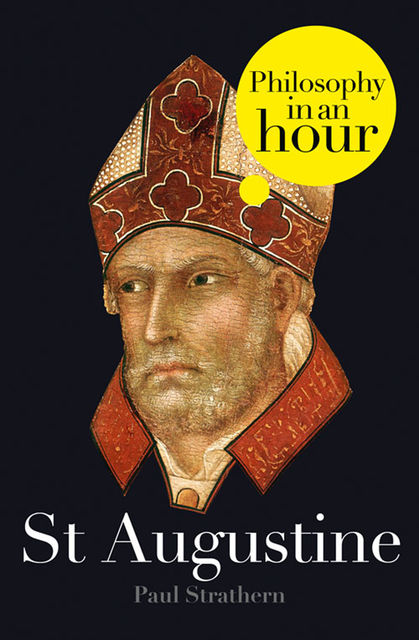
en
Hent appen:
iOS
·Android
St Augustine: Philosophy in an Hour
Denne bog er ikke tilgængelig i øjeblikket
45 trykte sider
- Udgivelsesår
- 2012
Citater
- LM CZhar citeretfor 5 år sidenDuring the last years of Augustine’s life the collapse of the Roman Empire continued apace. In 428 A.D. the Vandals invaded the North African provinces, and by May 430 they had reached the gates of Hippo. Four months after the beginning of the year-long siege, Augustine died, on August 28, 430. His saint’s day is now celebrated on the anniversary of this date. Augustine was widely regarded as a saint immediately after his death. (Canonisation as a formal process occurred only at the end of the first millennium.)
The Vandals soon overran the whole of North Africa, and in 497 their king, Thrasamund, expelled the Catholic bishops from Numidia. When the bishops left they took the body of Augustine with them to Sardinia. Here it remained until the Saracen invasions of the eighth century, when King Luitprand of the Lombards ransomed Augustine’s relics and had them brought by his knights to Pavia in Italy, where they remain to this day. As you walk down the Strada Nuovo, you come to the beautifully named San Pietro in Ciel d’Oro (St Peter in the Golden Heavens). Inside this twelfth-century Lombard-Romanesque church, by the high altar, you can see the ornate marble reliquary that contains the mortal remains of St Augustine of Hippo. - LM CZhar citeretfor 5 år sidenIn Augustine’s view they did, since chastity was a virtue of the mind. But they did not remain virtuous if they had enjoyed the experience. Augustine adds that God may have permitted these rapes because the women concerned were too proud of their chastity. Where much of Augustine’s theology may now appear meaningless or boring, such passages remain as offensive today as they must have been to any right-thinking person then. This is not to doubt Augustine’s integrity. If he too had been raped by the Goths, this probably would not have changed his thinking on the matter.
- LM CZhar citeretfor 5 år sidenThis could have taken place as an act of will, without accompanying lust. As Augustine recognised, this would have left Adam’s organ unstimulated by desire, so he provides an argument demonstrating how the necessary mechanical feat could have been achieved by willpower alone. Anyone who believes that philosophy is no laughing matter should read this passage. (See the extract in the Writings section.)
fb2epub
Træk og slip dine filer
(ikke mere end 5 ad gangen)

